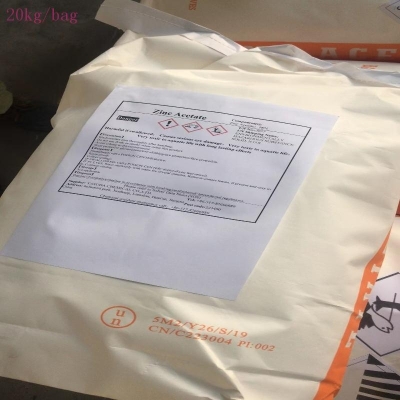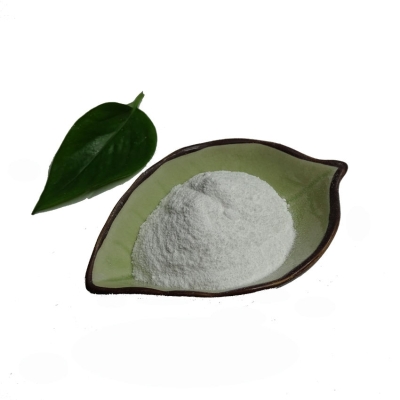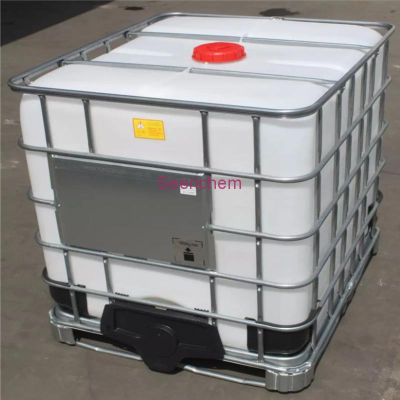-
Categories
-
Pharmaceutical Intermediates
-
Active Pharmaceutical Ingredients
-
Food Additives
- Industrial Coatings
- Agrochemicals
- Dyes and Pigments
- Surfactant
- Flavors and Fragrances
- Chemical Reagents
- Catalyst and Auxiliary
- Natural Products
- Inorganic Chemistry
-
Organic Chemistry
-
Biochemical Engineering
- Analytical Chemistry
-
Cosmetic Ingredient
- Water Treatment Chemical
-
Pharmaceutical Intermediates
Promotion
ECHEMI Mall
Wholesale
Weekly Price
Exhibition
News
-
Trade Service
Western scholars have proposed that modern agriculture is a loss-making industry.
From the 1970s to the present, China's agriculture has formed a system that relies on oil.
Modern agriculture has caused soil surface loss, land quality degradation, serious chemical pollution, and genetic modification projects, which directly affect the nutritional value of crops, threaten the safety of agricultural products, and cause great concerns about human health.
A more radical view is that the market must truly reflect the price paid by the ecology.
The value of food produced by chemical fertilizers and pesticides should take into account the costs of soil erosion, land desertification, and the cost of medical expenses for food-induced diseases.
Calculated in this way, the economic account of modern agriculture must be a loss.
"Agricultural Resources Guide" comprehensively reported that in early 2017, many fertilizer companies placed more and more emphasis on the concepts of ecological fertilizer and biological fertilizer in their marketing layout and product planning.
This fits the needs of China's agricultural transformation and upgrading.
At the "First National Soil and Fertilizer Harmony Conference" held at the end of last year, experts and scholars called for the realization of sustainable use of arable land resources and it is urgent to build a new "soil and fertilizer harmony" relationship.
Under the dual role of agricultural demand and overcapacity, both the macroscopic trend of the fertilizer industry and the microscopic dynamics of enterprises have initially shown the new trend of "removing fertilizers".
The newly announced total area of arable land in China is 2.
03 billion mu.
The National Agricultural Technology Extension Service Center pointed out that: cultivated land resources are facing many problems, such as insufficient stamina of cultivated land, rapid decline in organic matter content in some areas, shallow cultivated layers, unbalanced nutrients, increasingly serious soil pollution, and deterioration of soil ecological functions And so on, these threaten food security and ecological environment security.
To solve these problems, it is necessary to realize the harmony and unity of the soil ecosystem by building a "soil and fertilizer harmony" relationship.
We observe, After the fertilizer industry deeply understands the demand for fertilizer products from the status quo of agricultural development, some of the pioneers respond to it by "removing fertilizers.
" These companies have made a lot of adjustments in product promotion, new project planning and even development frameworks, gradually diminishing the concept of chemical fertilizers, and emphasizing new concepts such as biology, ecology, organic, and plant nutrition.
Observers in the industry have pointed out that “removal of fertilizers” by fertilizer companies is not a conceptual hype, it will become an industry trend, and companies will implement it in all aspects of product development, marketing and promotion, and corporate structure.
There is even a view that China's fertilizer industry will undergo a large-scale "removal of fertilizer" process in the next few years.
This process will gradually spread from pioneering companies to more companies, leading to new changes in the fertilizer industry.
In August 2016, Xindu Chemical announced that it was upgraded from a traditional agricultural production material "compound fertilizer" manufacturing company to a multi-faceted company covering compound fertilizers, condiments, and Internet life in small and medium-sized cities.
The name was also changed to "Yuntu Holdings" in a leaps and bounds.
.
A few years ago, fertilizer companies have taken the lead in adjusting their names, positioning themselves as ecological agricultural companies, ecological engineering companies, and even directly named agricultural groups.
The name change shows that companies are exploring the extension of the industrial chain and also showing their grasp of the development trend of the fertilizer industry.
From the 1970s to the present, China's agriculture has formed a system that relies on oil.
Modern agriculture has caused soil surface loss, land quality degradation, serious chemical pollution, and genetic modification projects, which directly affect the nutritional value of crops, threaten the safety of agricultural products, and cause great concerns about human health.
A more radical view is that the market must truly reflect the price paid by the ecology.
The value of food produced by chemical fertilizers and pesticides should take into account the costs of soil erosion, land desertification, and the cost of medical expenses for food-induced diseases.
Calculated in this way, the economic account of modern agriculture must be a loss.
"Agricultural Resources Guide" comprehensively reported that in early 2017, many fertilizer companies placed more and more emphasis on the concepts of ecological fertilizer and biological fertilizer in their marketing layout and product planning.
This fits the needs of China's agricultural transformation and upgrading.
At the "First National Soil and Fertilizer Harmony Conference" held at the end of last year, experts and scholars called for the realization of sustainable use of arable land resources and it is urgent to build a new "soil and fertilizer harmony" relationship.
Under the dual role of agricultural demand and overcapacity, both the macroscopic trend of the fertilizer industry and the microscopic dynamics of enterprises have initially shown the new trend of "removing fertilizers".
The newly announced total area of arable land in China is 2.
03 billion mu.
The National Agricultural Technology Extension Service Center pointed out that: cultivated land resources are facing many problems, such as insufficient stamina of cultivated land, rapid decline in organic matter content in some areas, shallow cultivated layers, unbalanced nutrients, increasingly serious soil pollution, and deterioration of soil ecological functions And so on, these threaten food security and ecological environment security.
To solve these problems, it is necessary to realize the harmony and unity of the soil ecosystem by building a "soil and fertilizer harmony" relationship.
We observe, After the fertilizer industry deeply understands the demand for fertilizer products from the status quo of agricultural development, some of the pioneers respond to it by "removing fertilizers.
" These companies have made a lot of adjustments in product promotion, new project planning and even development frameworks, gradually diminishing the concept of chemical fertilizers, and emphasizing new concepts such as biology, ecology, organic, and plant nutrition.
Observers in the industry have pointed out that “removal of fertilizers” by fertilizer companies is not a conceptual hype, it will become an industry trend, and companies will implement it in all aspects of product development, marketing and promotion, and corporate structure.
There is even a view that China's fertilizer industry will undergo a large-scale "removal of fertilizer" process in the next few years.
This process will gradually spread from pioneering companies to more companies, leading to new changes in the fertilizer industry.
In August 2016, Xindu Chemical announced that it was upgraded from a traditional agricultural production material "compound fertilizer" manufacturing company to a multi-faceted company covering compound fertilizers, condiments, and Internet life in small and medium-sized cities.
The name was also changed to "Yuntu Holdings" in a leaps and bounds.
.
A few years ago, fertilizer companies have taken the lead in adjusting their names, positioning themselves as ecological agricultural companies, ecological engineering companies, and even directly named agricultural groups.
The name change shows that companies are exploring the extension of the industrial chain and also showing their grasp of the development trend of the fertilizer industry.







